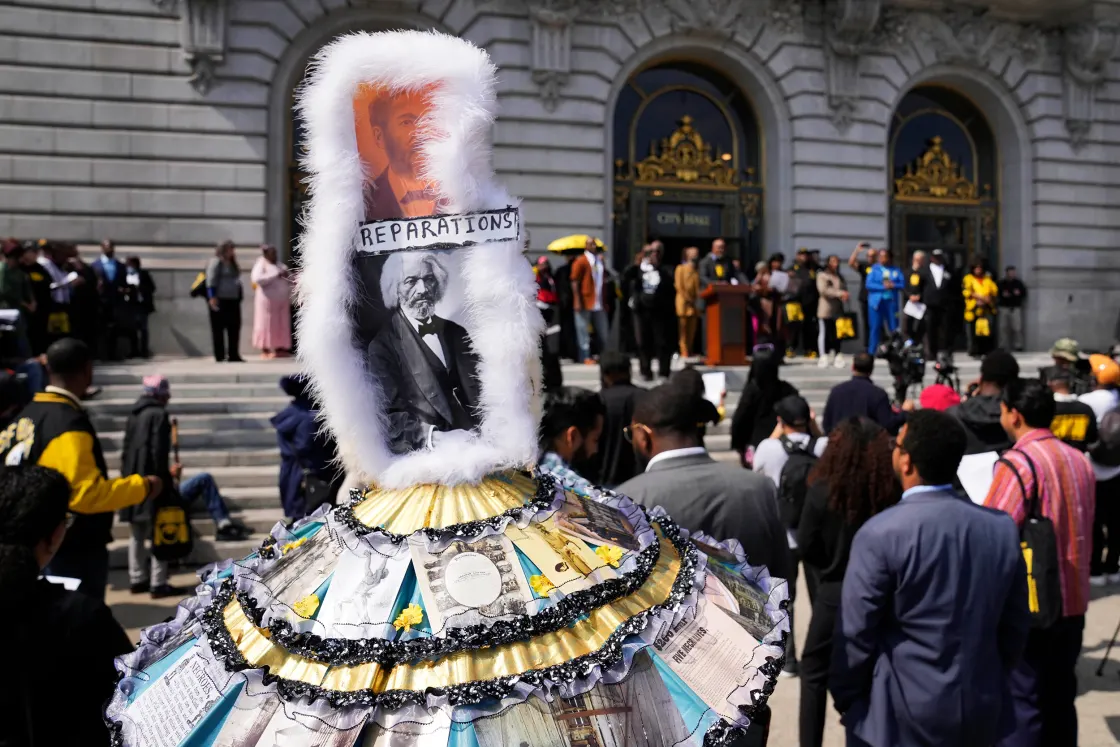For the first time, this year advocates seeking reparations for the harms inflicted on Black people during centuries of slavery in America saw a movement for redress that elicits hope.
Many municipalities either started or are forming commissions to address compensation to the descendants of enslaved Africans.
California has made the most zealous effort. The state’s reparations task force spent two years researching the impact of the generational damage of the discriminatory practices and produced a 1,100-page report with comprehensive recommendations that it considers to be the blueprint for other cities and states — and the federal government — to follow.
The blockbuster file includes a method to calculate financial compensation for those eligible for redress. More than 400 organizations have signed on to support reparations in the country’s most populous state.
While Evanston, Illinois, became the first city in the country in 2021 to actually pay reparations to its eligible Black residents, and New York recently enacted a commission to study the effects of slavery there, California’s push represents a major swing in the decadeslong fight for reparations. Yet Californians are looking ahead to the next year to see if any of these recommendations will actually come to fruition — and if there is enough political will to make it so.
Indeed, the road to reparations remains arduous.
Opposition is significant. California’s efforts surpassed those of the federal government. And while many cities and states are creating reparation committees, they are far from getting money into people’s pockets.
And then there’s the underlaying reticence of a significant part of the population: “Public opinion — meaning white people and white politicians — is not sympathetic to our plight and how it is tied to slavery,” said Jonathan Wright, a Los Angeles entrepreneur who attended three of the dozen California reparation public hearings.
In fact, a 2022 Pew Research Center poll said that 77% of Black adults believe descendants of enslaved Africans in the U.S. should receive reparations in some way, but only 18% of white respondents agreed.
“Call me a pessimist,” Wright said. “They have benefited from slavery and discrimination for centuries, but they can’t even tolerate the idea that our families for generations have been impacted by this. It’s OK for them to benefit, but not for us to be compensated. That’s what we’re dealing with and that makes me pessimistic.”
Those pushing for reparations understand Wright’s position. But many in California and beyond who are committed have a strategy they believe will be decisive. Their plan is to educate the naysayers or uninformed on why reparations are deserved and needed, and use that newfound support as leverage with politicians who could bring forward reparation studies and proposals.
To that end, Assemblymember Reginald Jones-Sawyer, who was on the California Reparations Committee, has spent much of his time since the publication of the recommendations report visiting groups and communities of all races, sharing knowledge about reparations, how they would work and why they are important.
“And I will tell you, it’s been received well,” Jones-Sawyer said. He said there has been strong engagement and people asked questions that conveyed their interest. “We dispelled a lot of misconceptions” and “explained why this push for reparations is still needed in 2023, 2024 and beyond if we’re going to make this a just society.”
The committee’s report lays out 112 recommendations that include programs around housing, education and public health, among many others. The California Legislative Black Caucus has hired a team of experts to whittle down the massive report to a digestible length. That condensed report will be shared with the public and the California Assembly, which will have to vote on bills based on the recommendations.

